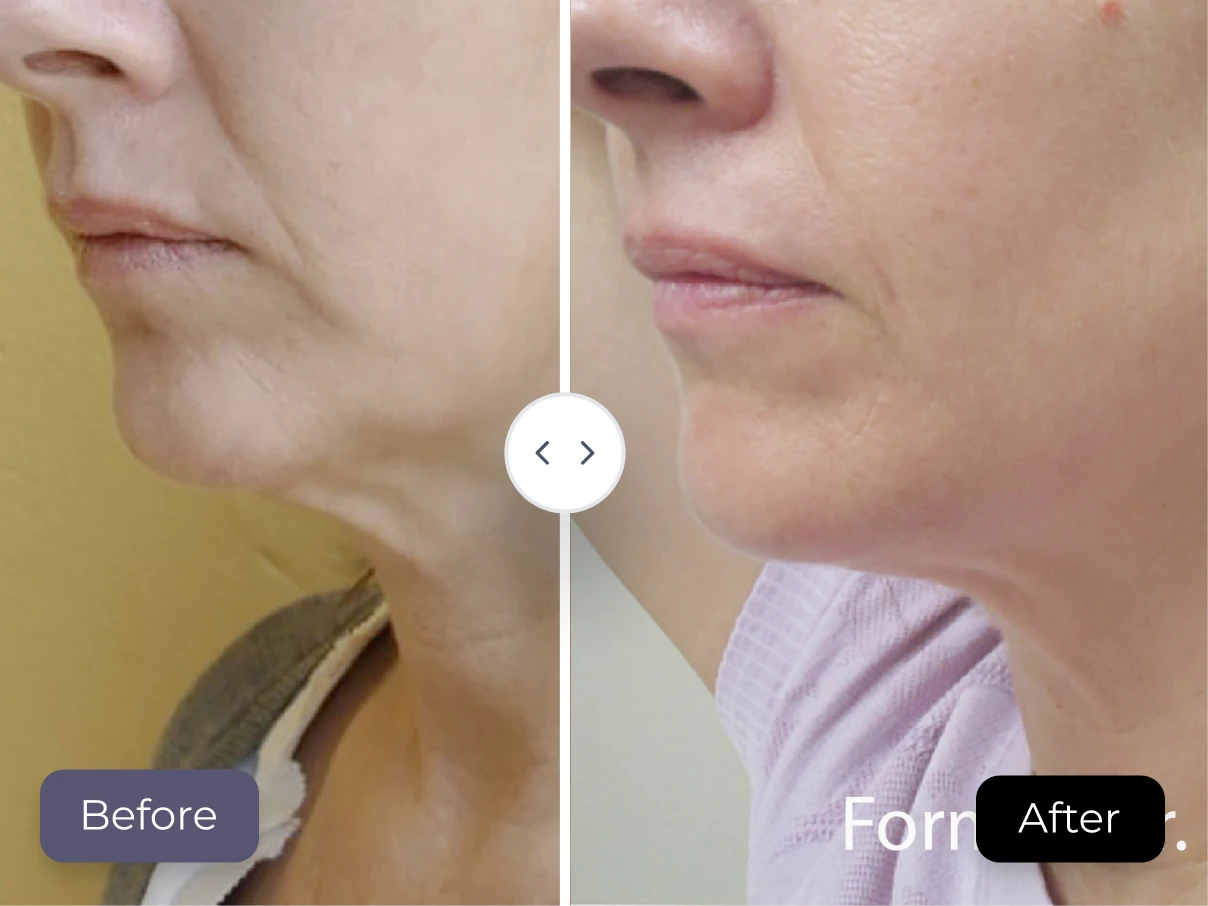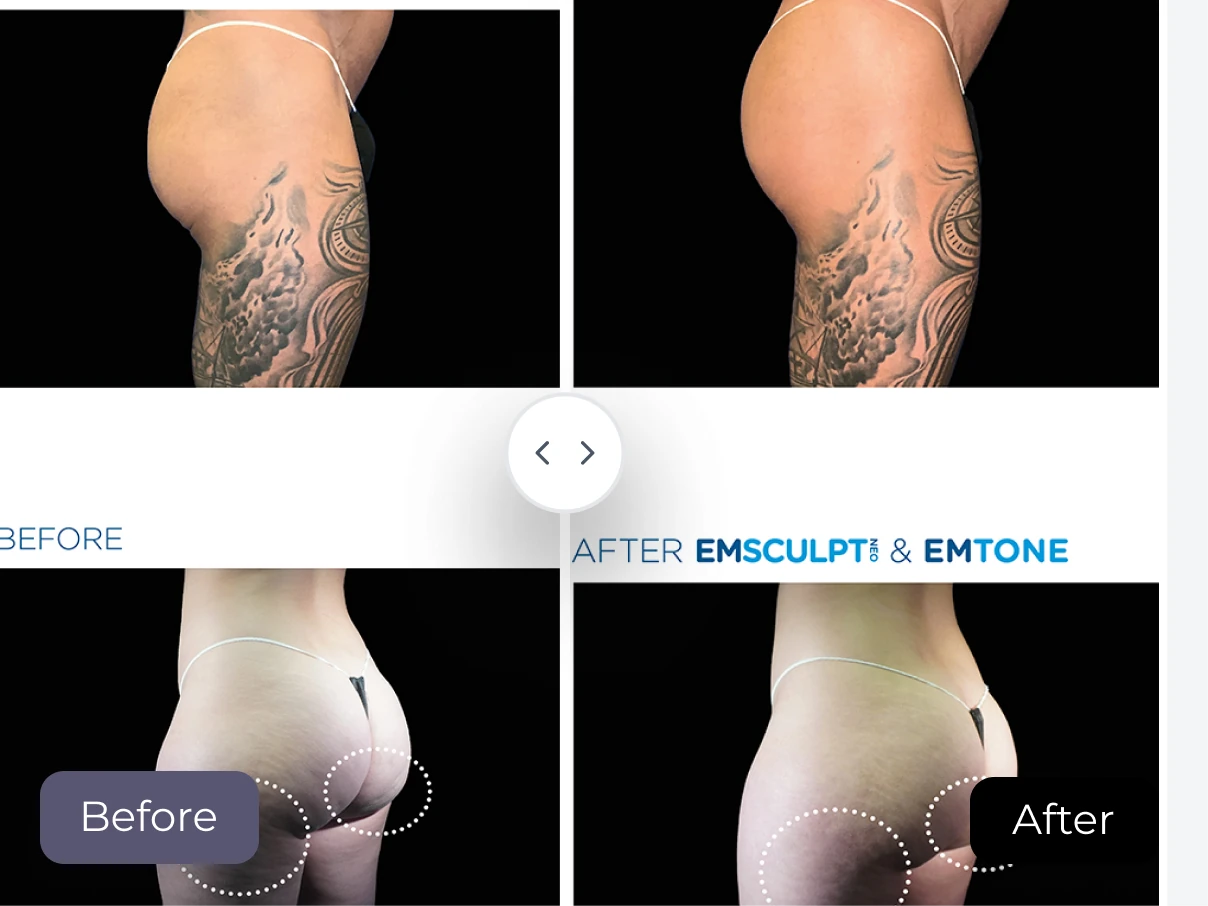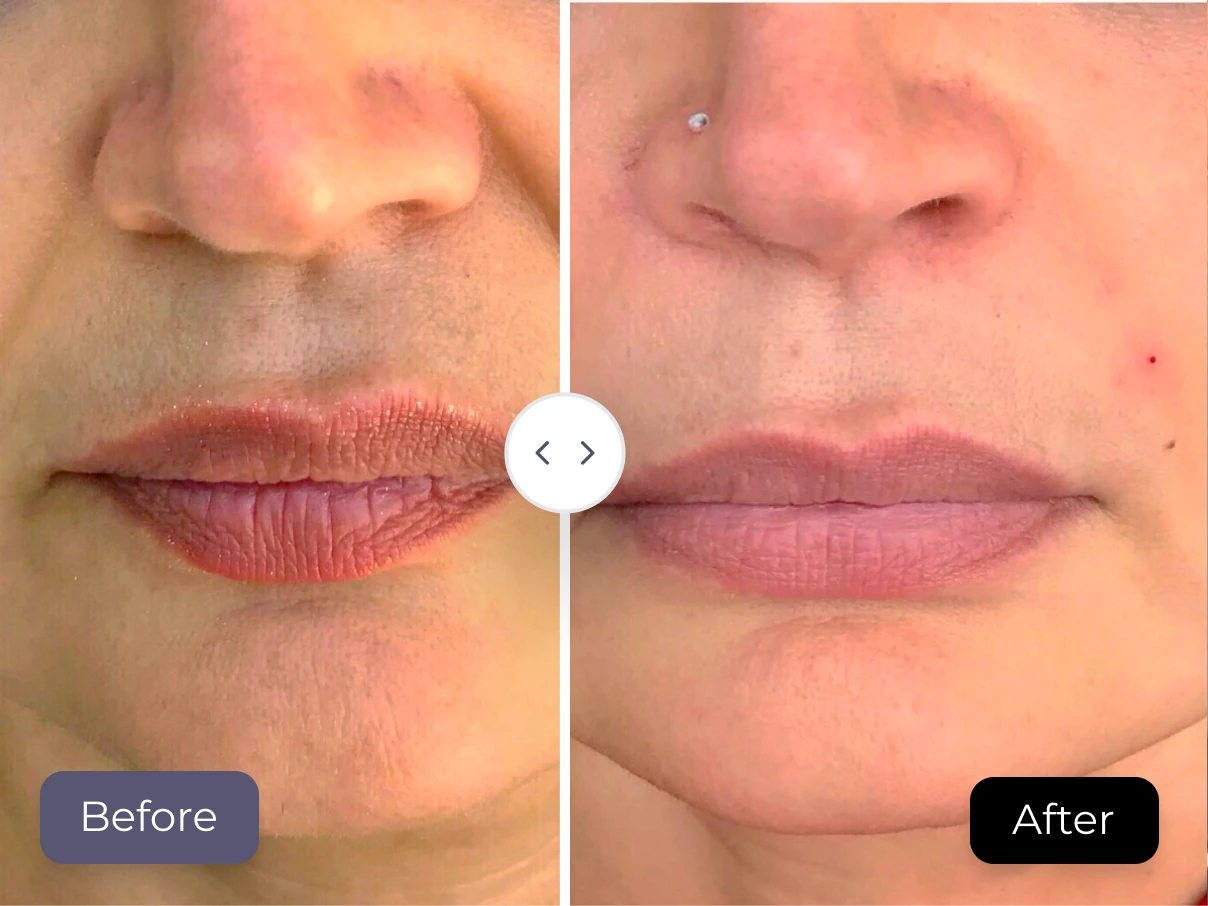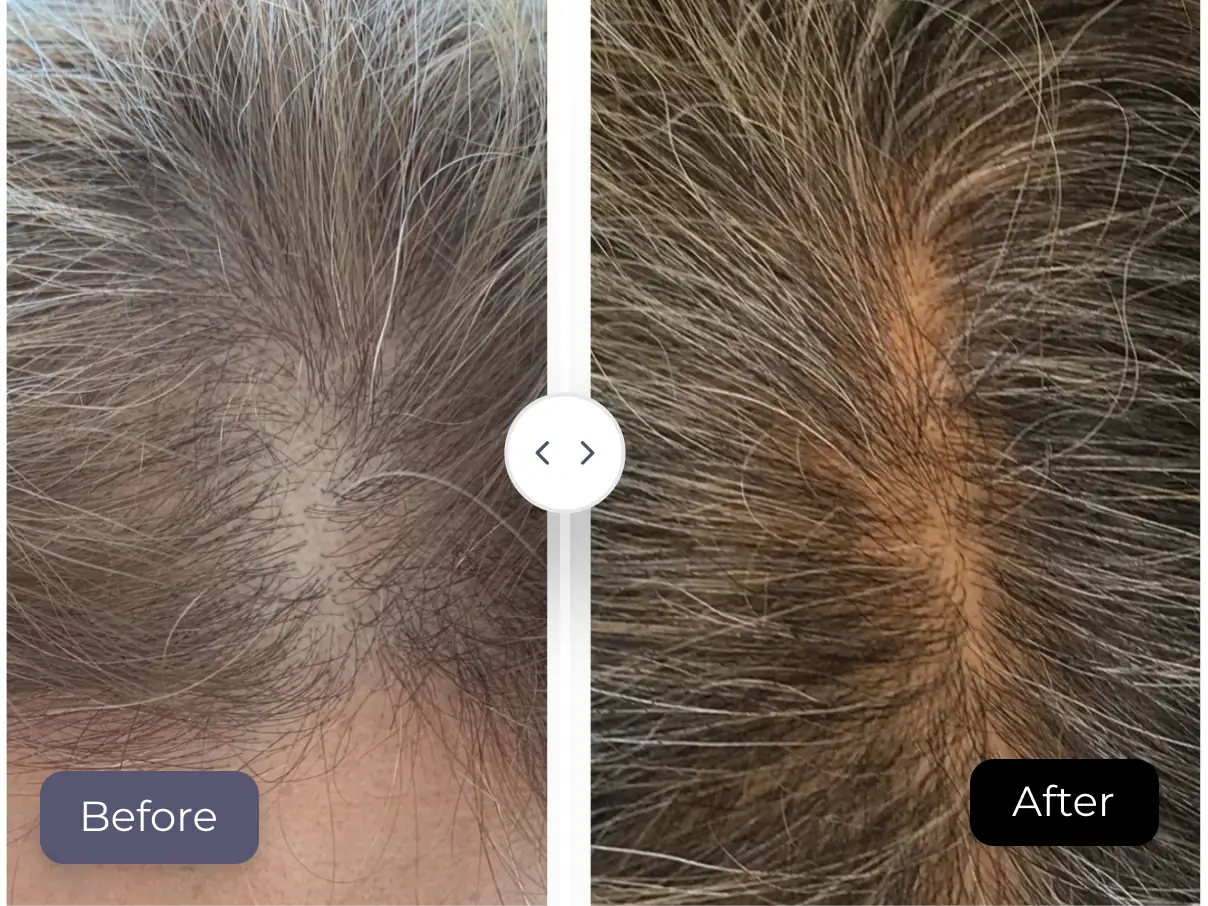At a Glance:
Botox is made from a purified protein called botulinum toxin type A, combined with human serum albumin and saline for stability and safety. It works by temporarily relaxing targeted muscles, softening wrinkles and fine lines without changing natural expression.
When administered by qualified specialists, Botox is one of the safest, most precise, and most effective aesthetic treatments for restoring a refreshed, youthful look.
At Celebrity Laser & Skin Care in North Vancouver, clients enjoy a luxurious, personalized experience where medical expertise and natural beauty meet.
Botox has become one of the most trusted cosmetic treatments for reducing wrinkles and fine lines, but have you ever wondered what it’s actually made of?
Despite the myths, Botox isn’t a chemical cocktail or filler. It’s a purified protein that works beneath the surface to relax facial muscles and smooth expression lines without changing your natural look.
At Celebrity Laser & Skin Care in North Vancouver, Botox treatments are performed by trained professionals using medical-grade products in a safe, precise, and comfortable environment. In this article, we’ll break down what’s inside Botox, how it’s made, how it works, and why it’s considered one of the safest aesthetic treatments today.
What is Botox made of?
Botox may sound complex, but its formula is surprisingly simple. It contains three main ingredients, each with a specific and safe purpose. Together, they create a purified injectable solution designed to relax targeted muscles and smooth wrinkles.
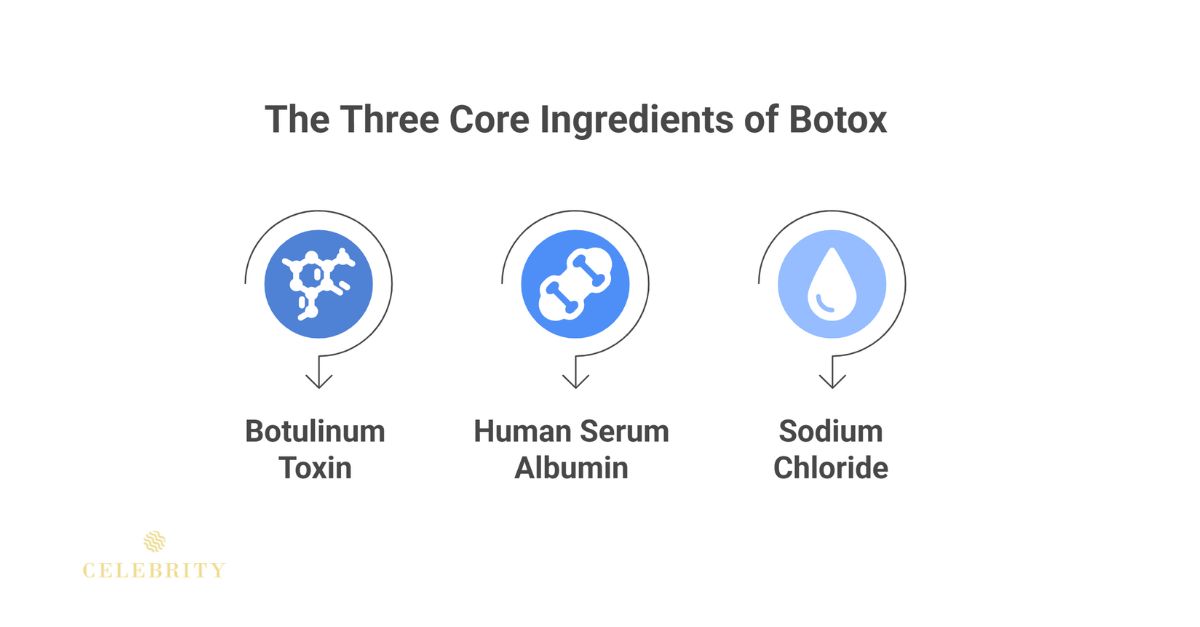
1. Botulinum Toxin Type A
This is the active ingredient in Botox, the purified protein responsible for temporarily relaxing muscles.
It’s derived from a naturally occurring bacterium (Clostridium botulinum) and refined under strict medical standards to ensure safety. In cosmetic treatments, it works by blocking nerve signals to specific facial muscles, preventing them from contracting and forming expression lines.
2. Human Serum Albumin
Human serum albumin is a natural protein already found in the human body. In Botox, it acts as a stabilizer, helping maintain the product’s structure and ensuring it remains effective until injected. It does not affect your skin or the results; it simply keeps the formula safe and stable.
3. Sodium Chloride (Saline Solution)
Sodium chloride, commonly known as saline, makes the Botox solution suitable for injection. It helps with dilution and consistency, allowing precise placement into facial muscles for balanced, natural-looking outcomes.
Every vial of Botox goes through rigorous purification and testing before being used in medical and cosmetic settings. When administered by qualified professionals, these ingredients work together to deliver smooth, natural results without compromising safety or comfort.
How is Botox made?
Botox begins with a natural source, the bacterium Clostridium botulinum. In its raw state, this bacterium is harmless when handled in controlled lab conditions. Scientists extract and purify a single protein from it: Botulinum toxin type A, the active ingredient in Botox.
The manufacturing process involves several careful stages:
- Fermentation: The bacteria are cultured in sterile, monitored environments to produce the toxin in controlled amounts.
- Purification: Advanced filtration removes all unnecessary bacterial material, isolating only the purified protein.
- Stabilization: The refined toxin is combined with human serum albumin (a natural protein) and sodium chloride (saline) to create a stable, injectable form.
- Testing and Quality Control: Each batch is thoroughly tested for purity, safety, and potency before it’s approved for medical and cosmetic use worldwide.
The final product is highly diluted, standardized, and sterile, ensuring consistent results and complete safety when used by certified professionals.
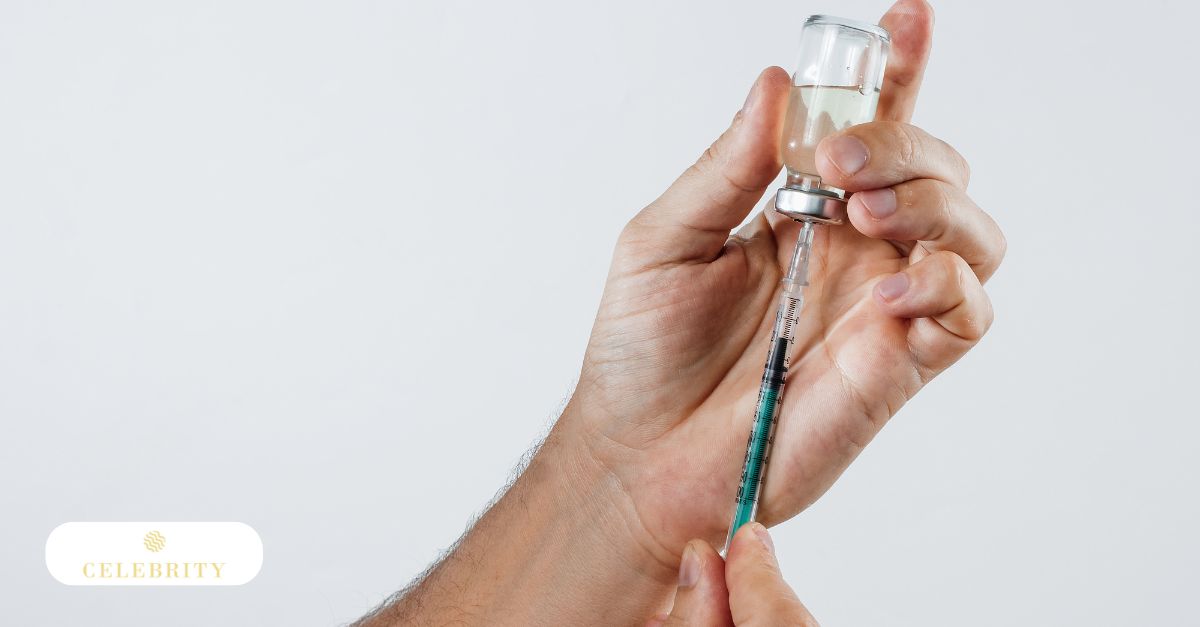
How Botox Works?
Botox acts at the neuromuscular junction, where nerves and muscles communicate. Normally, nerves release a chemical messenger called acetylcholine, which tells muscles to move. Botox temporarily blocks the release of this signal, allowing the targeted muscles to stay relaxed while surrounding ones continue functioning as usual.
This selective action makes Botox highly precise; it only affects the injected area and doesn’t travel through the body. Because it relaxes rather than paralyzes, the outcome looks smooth and refreshed, not stiff or artificial.
Over the following days, treated muscles gradually soften, and the skin appears more even. The effect typically lasts for several months, after which muscle activity slowly returns, making maintenance sessions an easy way to preserve consistent, natural-looking results.
At Celebrity Laser & Skin Care, every injection is carefully mapped to your facial anatomy, ensuring balanced results that enhance your expression, not change it.
How is Botox used?
Botox is a versatile treatment widely used in both cosmetic aesthetics and medical therapy. It’s applied through tiny, precisely placed injections that target specific muscles or glands, depending on the concern being treated.
Each session is customized to ensure results that look balanced, natural, and suited to your unique facial anatomy or condition.
Before diving into where Botox is used, it helps to understand that every injection is highly targeted; its purpose depends entirely on the area being treated and the results desired.
What are Botox® injections used to treat?
Botox isn’t a one-purpose treatment; it’s adaptable and clinically proven to address both cosmetic concerns and medical conditions. Relaxing specific muscles or calming nerve activity can improve appearance and relieve discomfort in targeted areas.
Cosmetic vs. Medical Uses of Botox | |
| Cosmetic Uses | Medical Uses |
| Forehead and Frown Lines | Chronic Migraines |
| Crow’s Feet | Excessive Sweating (Hyperhidrosis) |
| Bunny Lines | TMJ-Related Jaw Tension |
| Chin or Jawline Tightness | Neck and Shoulder Spasms |
| Brow Lift Enhancement | Muscle Disorders |
Cosmetic Uses
In aesthetic treatments, Botox helps soften expression lines caused by repetitive movement. The most common areas include:
- Forehead lines and frown lines
- Crow’s feet around the eyes
- Bunny lines on the nose
- Chin dimpling or jawline tension
- Brow lift enhancement for a refreshed look
Medical Uses
Beyond cosmetic benefits, Botox is also used to manage medical conditions such as:
- Chronic migraines
- Excessive sweating (hyperhidrosis)
- Neck or shoulder tightness
- TMJ-related jaw discomfort
These uses have been clinically researched and approved, offering effective, long-term relief without surgery or downtime.
When was Botox first used?
Botox was first approved for medical use in the late 1980s, initially to treat eye muscle disorders. Its cosmetic potential was discovered soon after, leading to global approval for wrinkle reduction in the early 2000s. Today, Botox remains a cornerstone of modern aesthetic medicine for achieving natural, refreshed results.
Is Botox safe?
When administered correctly by trained professionals, Botox is considered one of the safest and most studied cosmetic treatments available today.
It has been used in both medical and aesthetic practices for decades. It is approved by Health Canada and the FDA for multiple therapeutic and cosmetic applications.
The safety of Botox depends largely on the quality of the product and the expertise of the injector. At Celebrity Laser & Skin Care, only authentic, medical-grade Botox is used, and every treatment is performed by qualified clinicians following strict hygiene and dosing protocols.
Most people experience minimal discomfort during injections and can resume their routine immediately afterward.
Keep Reading: Microneedling After Botox
Common Side Effects
Mild side effects may occur after Botox treatment, but typically resolve within a few hours to days. These can include:
- Temporary redness or swelling at the injection site
- Minor bruising
- Mild headache or tightness in the treated area
Applying a cool compress and avoiding strenuous activity for the first 24 hours usually helps reduce these effects.
Are there long-term effects from Botox?
Clinical research shows no evidence of permanent side effects when Botox is administered properly. The results naturally fade as muscle activity returns, which is why most patients choose follow-up treatments every few months to maintain smoothness and tone.
With repeated use, some people notice that lines reappear more slowly, as the targeted muscles become trained to relax even between sessions.
Why Choosing the Right Provider Matters
While the product itself is safe, technique and precision make all the difference. Poorly placed injections or counterfeit products can cause uneven results or discomfort.
Choosing a certified provider ensures every treatment is performed safely, using authentic products and clinically tested methods for consistently natural results.
How is Botox different from fillers in terms of composition?
Although both Botox and dermal fillers are injectable treatments, they work in completely different ways and are made of entirely different materials.
The following comparison highlights the key compositional and functional differences between Botox and dermal fillers:
Botox vs Dermal Fillers: Key Differences at a Glance | ||
| Botox | Dermal Fillers | |
| Main Ingredient | Purified Protein (Botulinum Toxin Type A) | Hyaluronic Acid or Collagen-Based Gel |
| Primary Function | Relaxes Muscles | Restores Volume and Structure |
| Effect on Skin | Smooths Dynamic Wrinkles | Fills Static Wrinkles and Hollowness |
| Treatment Areas | Forehead, Eyes, Jawline | Cheeks, Lips, Nasolabial Folds |
| Result Type | Softer Expression | Fuller Contours |
Botox is a purified protein (botulinum toxin type A) that relaxes muscles responsible for creating dynamic wrinkles, those caused by facial movement, such as frown lines or crow’s feet. It doesn’t add volume or change facial contours; instead, it smooths expression lines by calming overactive muscles beneath the skin.
Dermal fillers, on the other hand, are gel-like substances made from hyaluronic acid or collagen-based materials. They are used to restore lost volume, shape facial contours, and enhance features such as lips, cheeks, or the jawline. Fillers physically add structure and plumpness, whereas Botox simply relaxes movement.
In essence:
- Botox = muscle relaxer (for wrinkles caused by movement)
- Fillers = volume restorer (for wrinkles or hollowness caused by aging)
At Celebrity Laser & Skin Care, many clients benefit from a combination approach using Botox to smooth dynamic lines and fillers to restore youthful contours for results that look refreshed, balanced, and completely natural.
Keep Reading: Best non surgical Facelift 2025
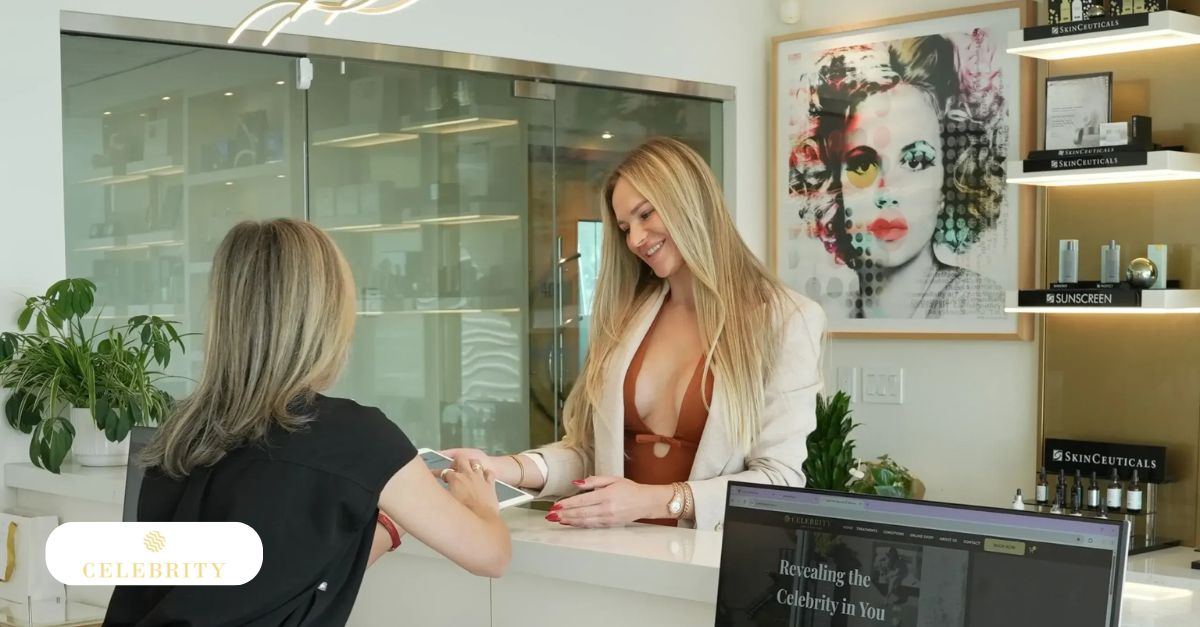
Botox Treatment at Celebrity Laser & Skin Care
At Celebrity Laser & Skin Care in North Vancouver, Botox treatments combine clinical expertise with a luxurious, client-focused experience. Every session is tailored to your facial anatomy and desired look, ensuring naturally refined results that enhance, not change, your expressions.
Step 1: Consultation and Assessment
Your experience begins with a one-on-one consultation in a calm, private setting. Our specialists assess your muscle movement, facial balance, and aesthetic goals to design a treatment plan that delivers subtle, harmonious improvement.
Step 2: Treatment Process
Each session takes approximately 15 to 30 minutes. Using ultra-fine needles and gentle precision, your clinician injects small amounts of Botox into targeted areas to smooth lines and refresh your appearance. Most clients describe the sensation as quick and comfortable, with minimal discomfort.
Step 3: Recovery and Follow-Up
There’s no downtime required; most guests return to their daily routines right away. Mild redness or swelling may occur but typically resolves within 1 to 2 days.
A follow-up visit is recommended two weeks later to assess results and make any necessary adjustments, ensuring your outcome meets the highest standards of care.
Step 4: Maintenance and Longevity
For lasting results, Botox or Dysport treatments are generally repeated every 3 to 4 months, depending on your muscle activity and aesthetic goals. Over time, many clients notice smoother skin and longer-lasting results with regular maintenance.
At Celebrity Laser & Skin Care, every detail, from the advanced techniques to the serene environment, is designed to deliver the luxury and precision expected of a leading North Vancouver medspa. You’ll leave feeling refreshed, confident, and effortlessly radiant.
Conclusion
Botox is a trusted aesthetic treatment known for its safety and natural results. Its purified protein formula works with your facial structure to smooth lines and refresh your appearance without altering your expressions.
At Celebrity Laser & Skin Care, every injection is performed by highly trained specialists who combine medical-grade precision with a luxurious client experience. From your first consultation to your post-treatment follow-up, every detail is handled with care, expertise, and discretion.
Book your personalized Botox consultation today and experience the art of rejuvenation in its most elegant form, where science, luxury, and natural beauty come together seamlessly.


